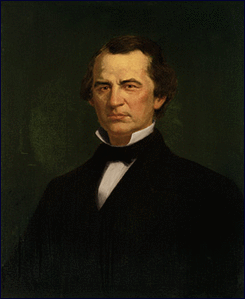DNC Shamed Into Helping Wisconsin Recall, Still Not Committing Funds
By: David Dayen, Firedog Lake
Wednesday May 16, 2012 9:35 am
After some controversy, the Democratic National Committee has agreed to help efforts with the Wisconsin recall. However, this will not include any of the DNC’s war chest of funds, which they are husbanding for the general election.
Debbie Wasserman Schultz, the DNC chair, committed to come to Wisconsin to attend a fundraiser and to recruit volunteers for Tom Barrett’s campaign to recall Scott Walker. In addition, DNC members have been encouraged to contribute to the recall effort. However, the DNC did not pledge funds that they plan to use to support the general election campaign of President Obama and other Democrats in the fall. They certainly have plenty; the President and the DNC just announced that they raised $44 million just in April.
…
The question becomes whether a recall failure would have consequences for the fall election. The DNC is clearly making the choice to sit out the recall financially, wait for everything to blow over, and come back in the fall. But there could be a ripple effect here, in a key swing state as well as a state with an open Senate seat and a hot contest there. The failure to keep up the recall energy and dispose of Walker could definitely have repercussions. And there are only three weeks to turn it around.
Electoral victory my ass. What “Democrats” are really interested in-
The Pete Peterson Fiscal Summit and What It Says About Democrats
By: David Dayen, Firedog Lake
Wednesday May 16, 2012 1:03 pm
(I)t’s interesting to me to see who has been seduced by this power. Republicans are basically saying the same things in the era of Peterson that they have been saying for the past thirty years: they want low taxes and less wealth-redistributing programs to the lower classes. Sometimes they say they want “less spending” and a “smaller deficit,” but only when a Democrat is in office, and only in relation to those redistributive policies. The tax cuts blow holes in the deficit, so that’s not a preoccupation for them.
…
The only tax cuts they would entertain repealing are the ones that distribute funds to the lower classes. For example, in their budget bill, they replaced defense cuts with, among other things, a rollback of the child tax credit, which goes mostly to lower-class and middle-class families.
By contrast, Democrats have moved over the last several decades, under duress from Peterson on having to “be serious” about deficits. One after another at last night’s event, Democratic politicians took aim at so-called entitlements, which I prefer to describe as the social safety net.
…
I’d like to find the Democrats who are “reluctant to commit to longer-term health-care savings” and who “don’t want to touch Social Security.” Contrary to President Clinton’s remarks, they no longer exist. Even Nancy Pelosi is playing footsie with benefit cuts.
If this doesn’t happen in the near future, it’s because Peterson and his ilk failed to get Republicans to provide cover with any tax increases. But the idea that Democrats are somehow reluctant to get out the budget axe is just wrong. They are far more serious about so-called “fiscal responsibility” than Republicans. In fact, the President on that stage, Clinton, was the one who ended welfare as we know it. We now know, after the Great Recession, the terrible costs to that policy for millions of families. But Democrats haven’t learned from that experience.
So while Republicans are clearly insane about the fiscal future – and impervious to logic, as Tom Coburn showed – the country has drifted to the right because one party has become caught up in pleasing the likes of Pete Peterson rather than their own constituents.
“We have a lot of people in our party who will not be drummed out if they depart from the conventional wisdom,” Clinton said last night. That’s not true. For the conventional wisdom in the Democratic Party is now that “balanced” cuts are needed to the entire budget to move America forward. And if you depart from that… you hear the drums playing, right?
One party. And it’s not the Republicans, they’ve always been about pleasing the likes of Pete Peterson.



Recent Comments